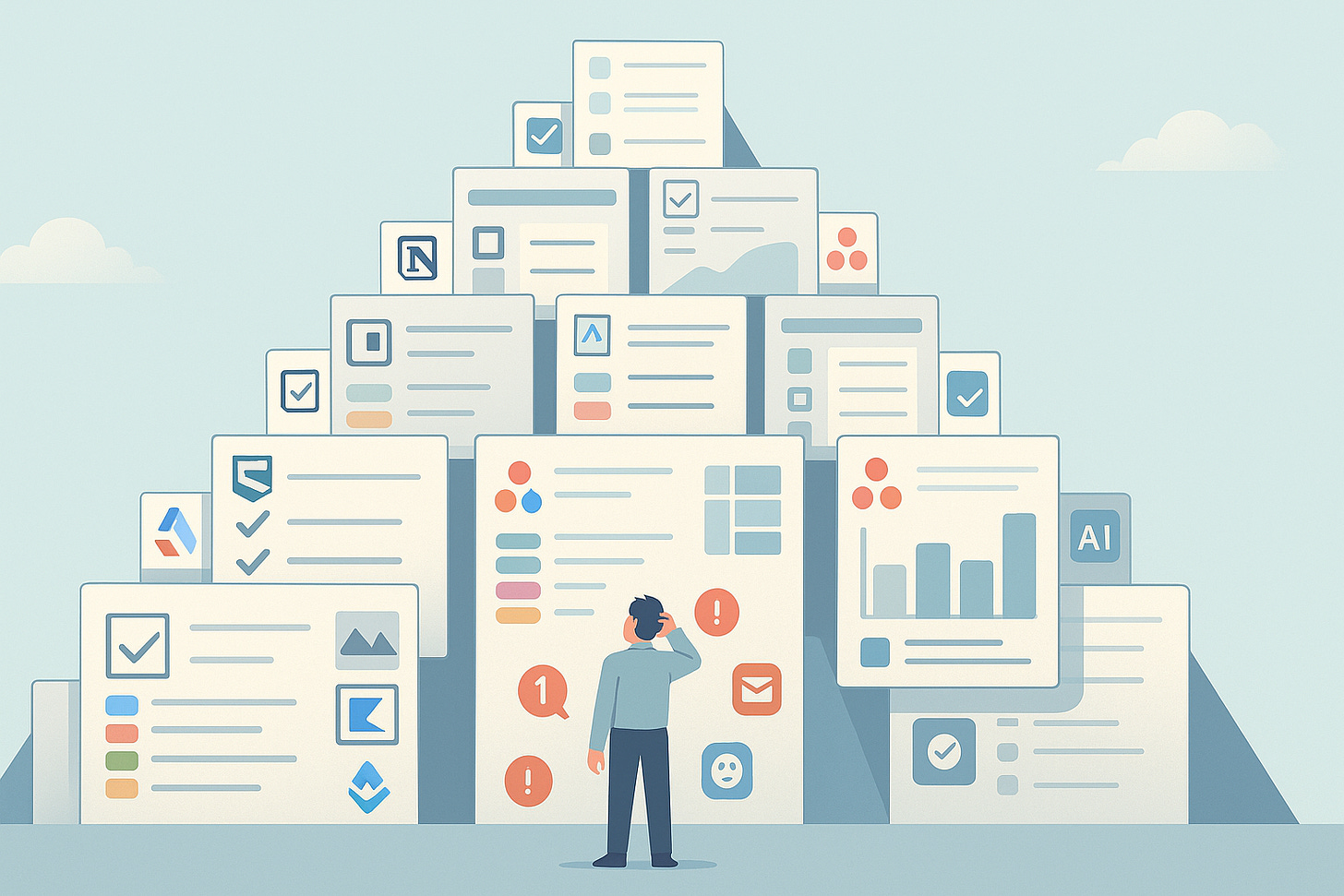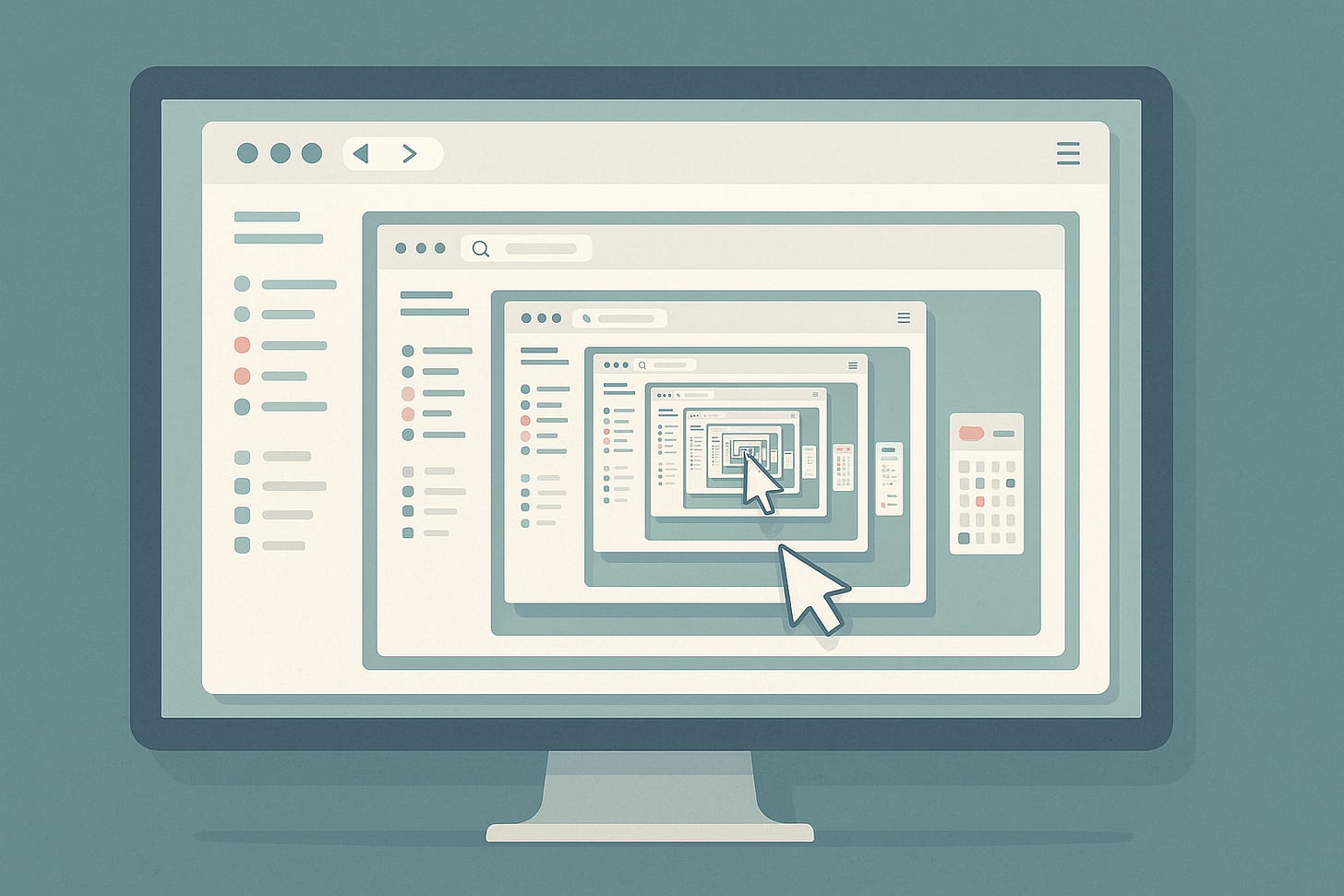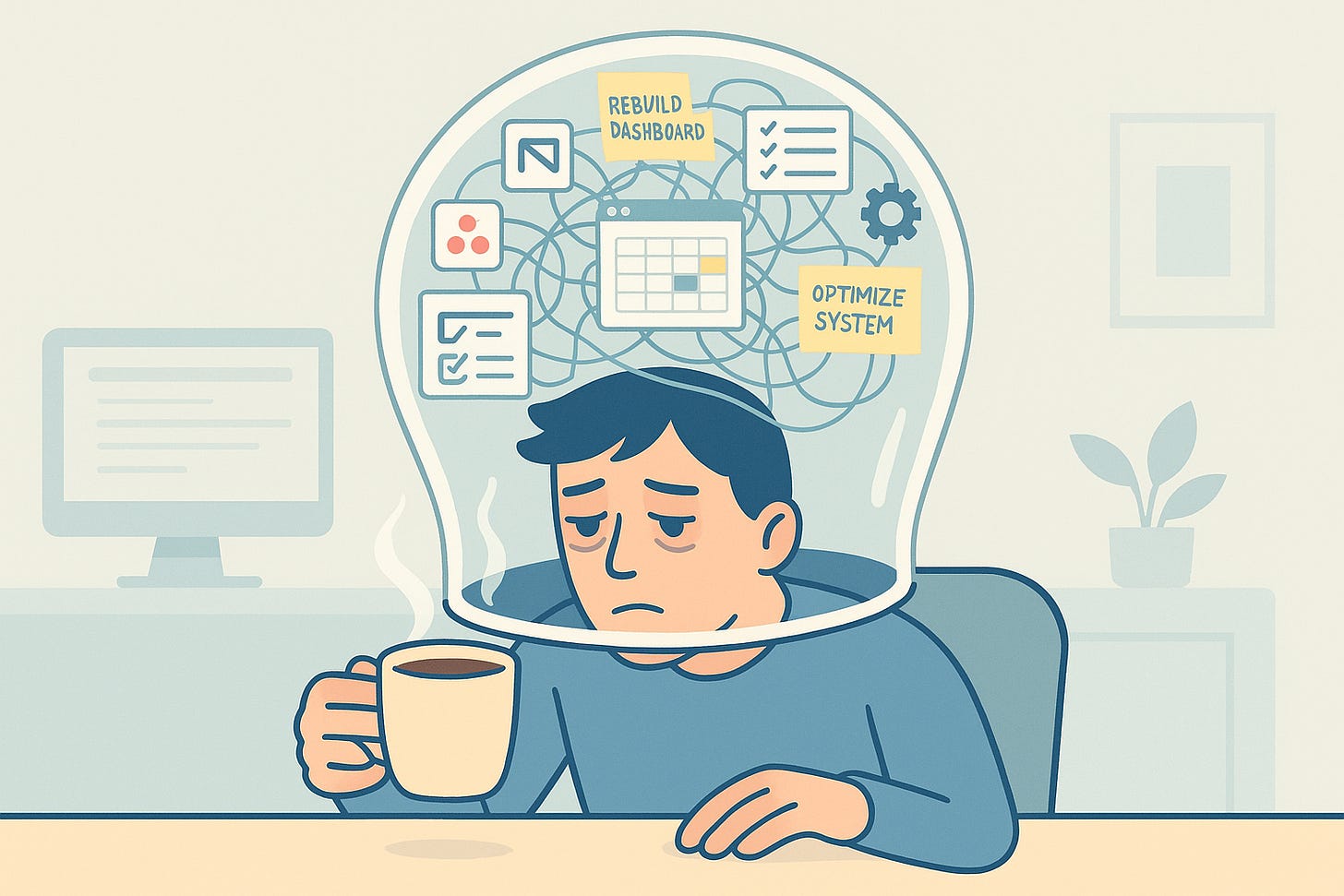We're all stuck in a productivity pyramid scheme, thanks to AI
Welcome to productivity inflation, where every new tool creates more work.
Productivity tools used to promise us clarity. Fewer meetings, fewer tabs, fewer scattered thoughts. A single dashboard to rule them all.
However, somewhere along the way, the tools designed to streamline our work began to resemble the very thing we were trying to escape: endless layers of management, complexity, and busywork. Now, with AI in the mix, the problem isn't just accelerating — it's compounding.
This matters because, increasingly, our workdays are being shaped not by human managers but by software. The tools we rely on to stay organized and productive have gradually become frameworks we answer to, not tools we command.
It starts to resemble a pyramid scheme: the more you invest in setup — integrations, automations, perfect dashboards — the more work it demands to sustain. What began as optimization starts to feel like an unpaid part-time job.
Welcome to the era of productivity inflation, where every tool needs another tool to manage it, and your day is spent updating dashboards about your dashboards.
Take Notion, for example. What starts as a simple weekly planner often spirals into a multi-tiered productivity palace: daily task views linked to quarterly OKRs, synced calendars, habit trackers, and aesthetic dashboards within dashboards. It's slick and customizable, and it can easily take hours of your day to keep the system running. At some point, you're no longer using Notion to organize your work. Managing Notion becomes the work.
ClickUp promises to be "one app to replace them all," offering goal tracking, time tracking, docs, chats, mind maps, and more. But its complexity often requires users to build entire hierarchies and automation rules to simply function. It's like hiring an entire project management team, only to realize you're every member of it.
Asana recently added AI features to help prioritize your week, which sounds helpful — until the software starts assigning tasks you never created, based on meeting summaries or vague context from other projects. You're no longer just delegating. You're triaging your AI's imagination.
Then there's Rewind, the AI memory tool that joins your meetings and suggests next steps automatically. The idea is promising. But in practice, it creates a new kind of micro-management: sifting through AI-generated action items, deleting the irrelevant ones, rewriting the others, and wondering if you should have just taken notes yourself.
When it becomes their personality
You've probably met them — the productivity evangelists. The ones giving conference talks with screenshots of their perfectly tiered Notion dashboards. Those posting LinkedIn carousels about their "second brain" setups seem to think it's a form of moral enlightenment.
For some, productivity tools aren't just utilities. They're a performance. The aesthetics of organization get mistaken for actual output, and somewhere between the color-coded goal matrices and daily standups with themselves, the real work disappears. You can spend hours building a system that appears productive, yet still not accomplish anything.
These aren't isolated flaws. They're symptoms of a broader shift: the belief that every aspect of work can — and should — be systematized, branded, and optimized. We've internalized the idea that productivity is something to be designed, maintained, and performed. But the more we try to perfect it, the more we risk being consumed by the very thing we built.
There's also an emotional cost. When you've spent hours crafting the perfect workflow, only to fall behind or abandon it after a busy week, it doesn't just feel inefficient — it feels like failure. The system didn't let you down. You let the system down.
That's the pyramid scheme. The more time and energy you put into making your tools work, the harder it becomes to question whether they're actually helping. So you double down — another AI integration here, a dashboard redesign there — hoping the next tweak will finally unlock flow state. Often, it doesn't.
This isn't to say productivity tools are inherently evil. Many are genuinely helpful. But there's a line between a system that supports your work and one that becomes your work. And with AI now built into everything, that line is getting blurrier.
The most effective productivity systems are the ones you barely notice. They support your work without demanding to be managed.
If you're spending more time tweaking the machine than doing the work, you're not being more productive. You're just climbing the pyramid.




